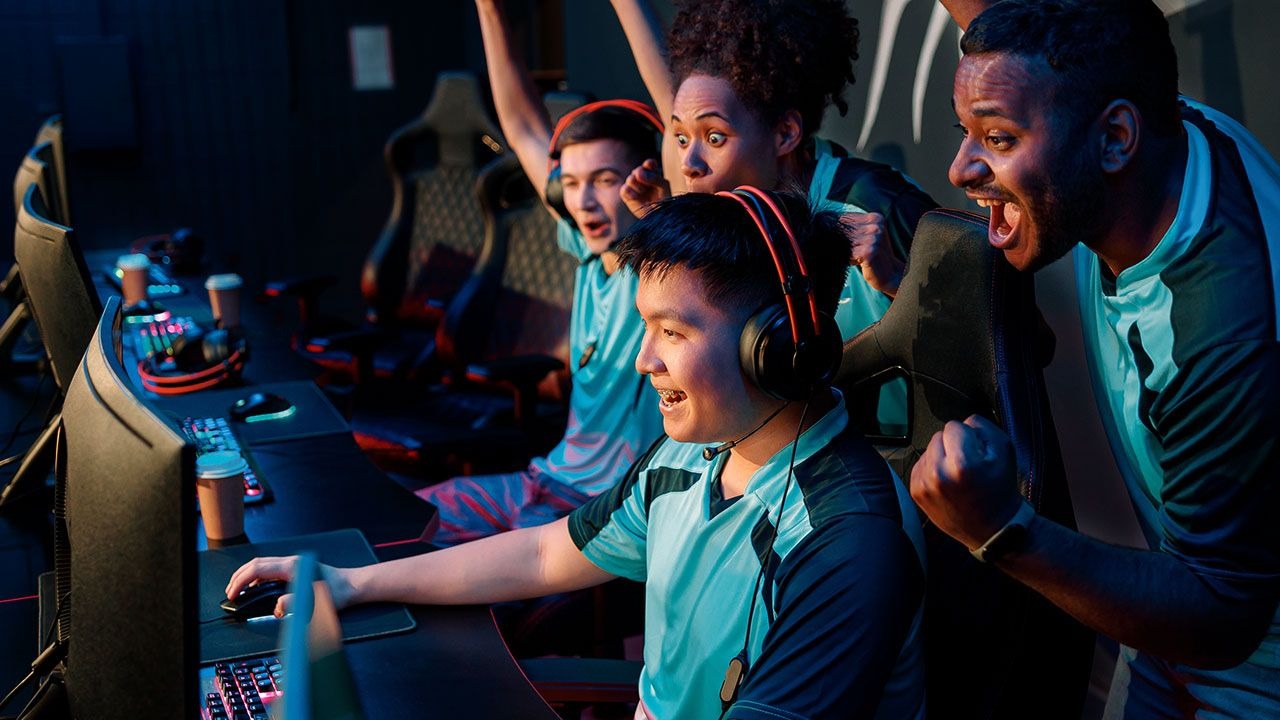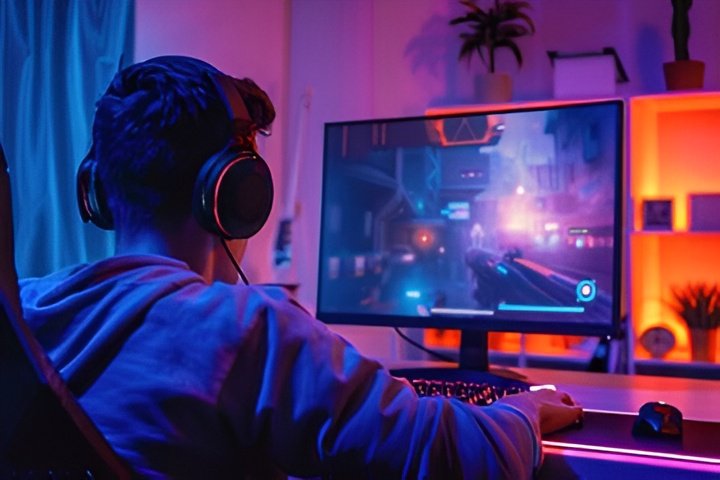This article explores how gaming communities influence mental health, the benefits they offer, potential challenges, and how they contribute to overall well-being.
The Connection Between Gaming and Mental Health
The relationship between gaming and mental health is complex and multifaceted. On one hand, video games offer an escape from the stresses of everyday life, providing players with an immersive environment where they can forget their worries and focus on achieving goals, solving puzzles, or simply having fun. On the other hand, excessive gaming or toxic behaviors in gaming environments can lead to negative consequences such as isolation, anxiety, or depression.
However, the rise of gaming communities has introduced a new dimension to this discussion. The social aspect of gaming can have both positive and negative impacts on mental health, depending on how players engage with these communities and the nature of the interactions they experience.
Positive Mental Health Benefits of Gaming Communities
One of the most significant benefits of gaming communities is their ability to foster social connections. While gaming was once viewed as a solitary activity, online multiplayer games and community platforms like Discord and Twitch have made it easier for players to interact with others, often forming strong friendships and support networks. Here are some ways gaming communities contribute to mental well-being:
1. Combatting Loneliness and Social Isolation
One of the leading causes of poor mental health is social isolation. People who lack meaningful social connections are at a higher risk of experiencing anxiety, depression, and other mental health issues. Gaming communities provide an outlet for people who may struggle to connect with others in face-to-face interactions, such as individuals dealing with social anxiety, introversion, or physical disabilities.
Through gaming communities, players can engage with others in a shared activity, which helps combat feelings of loneliness. The nature of these communities allows people to form connections in a more relaxed, pressure-free environment, often behind the anonymity of usernames and avatars. This form of social interaction can offer companionship and support, improving overall well-being.
2. Building Friendships and Support Networks
Gaming communities provide an opportunity for people to bond over shared interests, and in many cases, these bonds grow into genuine friendships. Whether it’s through multiplayer games, forums, or voice chat on platforms like Discord, players develop relationships that extend beyond the game itself.
These friendships can act as a support network for individuals going through difficult times. In many cases, players in gaming communities are more than willing to offer advice, lend an ear, or provide encouragement to those who need it. This support is especially valuable for people who may feel disconnected from their real-world social circles. Gaming communities can act as a safe space where players feel understood and accepted, fostering a sense of belonging.
3. Encouraging Teamwork and Cooperation
Many multiplayer games are built around the idea of teamwork and cooperation. Whether it’s working together to complete a mission in World of Warcraft, coordinating strategies in League of Legends, or surviving in Fortnite, players must collaborate to achieve success. These collaborative experiences promote skills such as communication, problem-solving, and leadership, all of which contribute to a sense of accomplishment and improved self-esteem.
When players succeed in a game by working together, they often experience a sense of validation and fulfillment. These positive interactions can translate into improved mental well-being, as players feel valued and competent in their ability to contribute to a team.
4. Stress Relief and Relaxation
Video games are often used as a form of stress relief. Engaging in a game, whether it’s an action-packed shooter or a calming simulation like Animal Crossing, can help players unwind after a long day. Gaming communities amplify this effect by providing a space where players can share their experiences and strategies for managing in-game challenges.
Additionally, many games have “mindful” elements that promote relaxation, such as creative building games or open-world exploration games. Gaming communities allow players to share these experiences, helping to foster a calming and supportive environment.
5. Promoting a Sense of Achievement
The structure of many video games is based on setting and achieving goals, whether it’s leveling up, completing quests, or earning rewards. This sense of achievement can be incredibly satisfying for players, particularly in gaming communities where achievements are recognized and celebrated by peers. These small victories provide a boost in self-esteem and can lead to a more positive outlook on life.
When players post about their gaming accomplishments in forums or share highlights with their community, they often receive praise and encouragement from others, further enhancing their sense of achievement. This positive reinforcement can have a profound impact on an individual’s mental well-being, helping them build confidence and resilience.
The Challenges of Gaming Communities and Mental Health
While gaming communities offer many positive benefits, there are also potential challenges that can negatively affect mental health. Understanding these challenges is important for ensuring that players engage with gaming communities in a healthy and balanced way.
1. Toxic Behavior and Harassment
Unfortunately, toxic behavior and harassment can be prevalent in certain gaming communities, particularly in highly competitive environments. Instances of cyberbullying, trolling, or harassment can have a damaging impact on an individual’s mental health. For some players, the negative interactions they face in gaming communities can lead to feelings of anxiety, frustration, or even depression.
Developers and community moderators have taken steps to address toxic behavior by implementing reporting systems, muting features, and codes of conduct, but it remains an issue in many online spaces. It is essential for gaming communities to create safe, inclusive environments where players can engage without fear of harassment.
2. Addiction and Overuse
Gaming addiction is a growing concern, and the social aspect of gaming communities can sometimes contribute to compulsive gaming habits. In some cases, players may feel pressured to spend excessive amounts of time in-game to keep up with their friends, improve their skills, or participate in events.
Excessive gaming can lead to negative consequences such as sleep deprivation, neglect of responsibilities, and physical health issues. In extreme cases, it can also exacerbate mental health problems like anxiety and depression. Finding a healthy balance between gaming and other aspects of life is crucial for maintaining overall well-being.
3. FOMO (Fear of Missing Out)
In gaming communities, particularly those centered around multiplayer games or live-service games, the fear of missing out (FOMO) can be a significant issue. 카지노커뮤니티 Players may feel pressured to participate in limited-time events, rank up quickly, or stay active to avoid falling behind their peers. This sense of urgency can lead to feelings of stress and inadequacy if players cannot keep up.
FOMO can negatively affect mental health by creating an environment where players constantly compare themselves to others or feel like they are not achieving enough. This can lead to burnout and frustration, particularly in competitive gaming environments.
The Role of Moderation and Support in Gaming Communities
To promote mental health and well-being, many gaming communities and platforms have introduced systems to provide players with support and ensure a positive environment. These systems are vital for creating safe spaces where players can engage without negative consequences.
1. Mental Health Awareness Initiatives
Some gaming communities have taken proactive steps to raise awareness about mental health issues and provide resources for players who may be struggling. For example, organizations like Take This offer mental health support specifically tailored for gamers, including tips for managing gaming habits and addressing mental health concerns.
Gaming platforms like Twitch have also partnered with mental health organizations to promote well-being and reduce stigma around mental health issues within the gaming community. By normalizing discussions about mental health, these initiatives encourage players to seek help when needed and foster a more supportive environment.
2. Community Moderation and Safe Spaces
Moderation plays a crucial role in maintaining the health of gaming communities. Effective moderation ensures that toxic behavior, harassment, and inappropriate content are addressed quickly and efficiently, creating a safer space for all players. In many communities, moderators are tasked with enforcing rules of conduct, fostering a respectful environment, and supporting players who may face difficulties.
Some gaming platforms also offer “safe spaces” where players can engage without fear of harassment or negativity. These spaces often have stricter moderation rules and focus on inclusivity, making them ideal environments for players who prioritize positive interaction over competition.
Conclusion
Gaming communities Health And Fitness Flow a wide range of benefits for mental health and well-being, from combatting loneliness and building friendships to providing stress relief and a sense of achievement. For many players, these communities become vital support networks where they can connect with others and find validation, understanding, and companionship.





